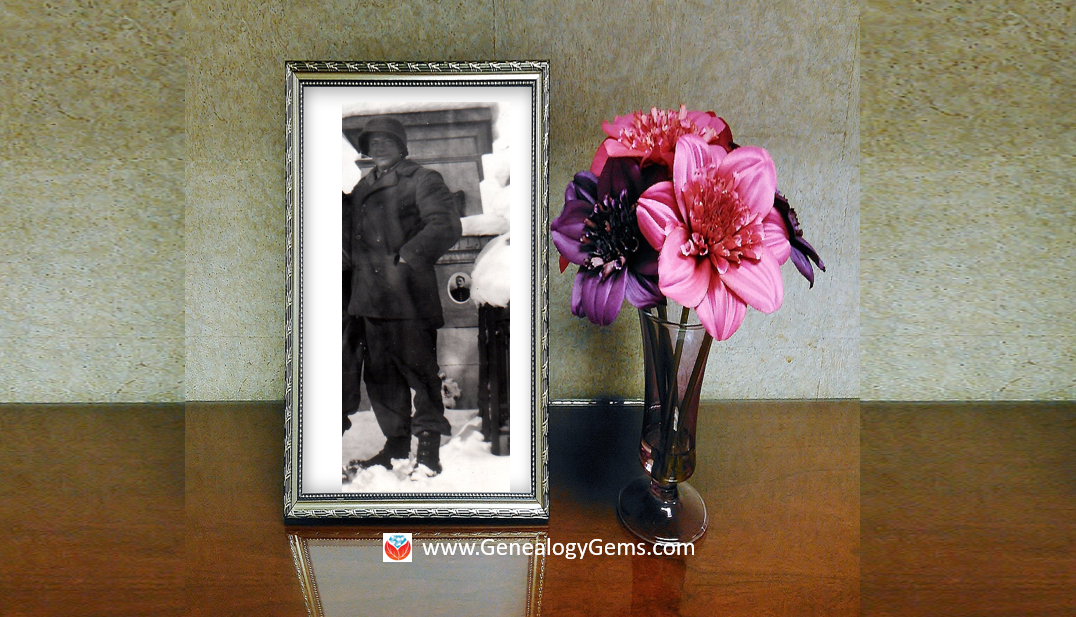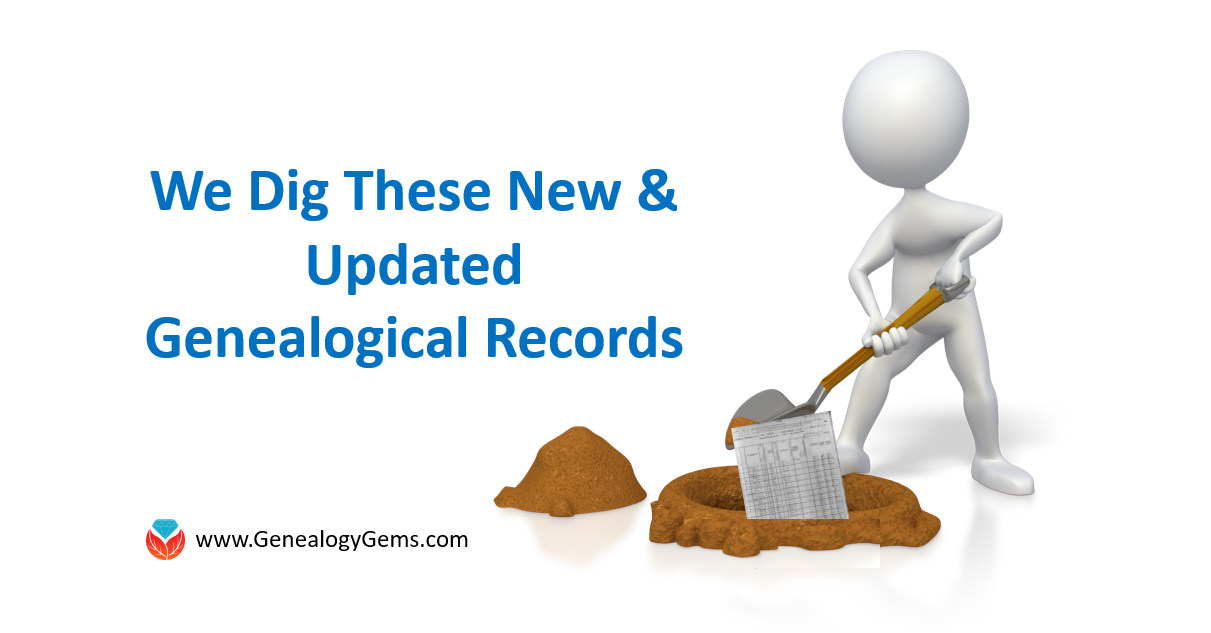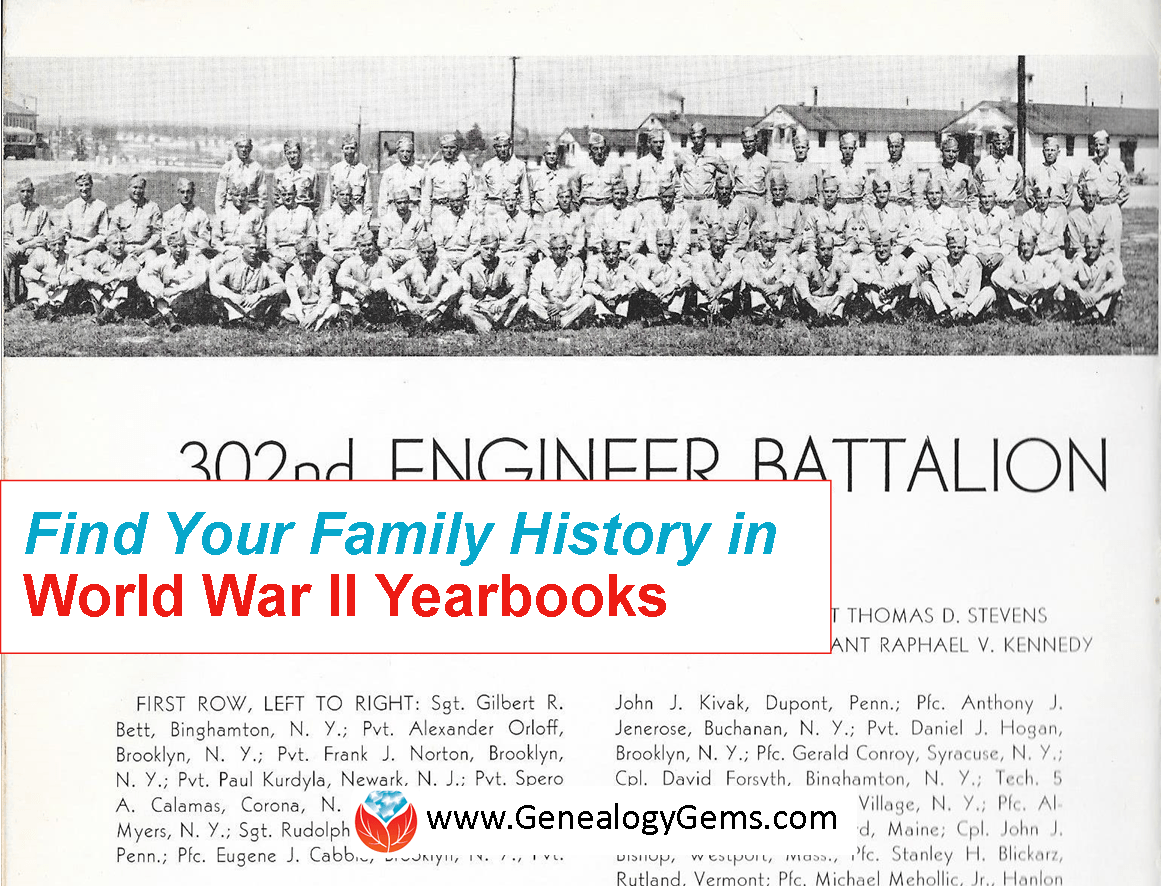by Lisa Cooke | Sep 7, 2016 | 01 What's New, Book Club, British, Military, United States |
Research WWII ancestors with these three tips. The experiences of our ancestors during World War II add a rich texture to their personal history. Whether in the military, on the home-front, or those living in neighborhoods that became battle zones, find their stories with these helpful tips.

 In Everyone Brave is Forgiven by Chris Cleave, our current Genealogy Gems Book Club title, we read about different ways Londoners experienced World War II. A soldier shipped out to Malta, a female War Office recruit, a child evacuee, a civilian running regularly for underground shelters as bombs fell; these are just a few of the book’s poignant stories.
In Everyone Brave is Forgiven by Chris Cleave, our current Genealogy Gems Book Club title, we read about different ways Londoners experienced World War II. A soldier shipped out to Malta, a female War Office recruit, a child evacuee, a civilian running regularly for underground shelters as bombs fell; these are just a few of the book’s poignant stories.
That diversity of experience was part of our ancestors’ lives, too. Some served in the military and some kept the home fires burning. Some even dodged bombs or bullets in their own neighborhoods! Many experienced the horrors of concentration, POW, or other types of interment camps.
As many different experiences as they had, there are just as many ways to research their lives during WWII. Here are several scattered examples of the kinds of records and resources you may find. Do a little of your own exploring to see whether the kinds of materials below exist for your WWII ancestors.
Research WWII Ancestors: The Soldier

Research WWII Ancestors: On the Home Front and in Harm’s Way

Lisa’s grandmother heading off to work at Kaiser’s Richmond Shipyards, c. 1941
Millions of civilians’ lives were directly affected by the war. Many women entered jobs for the first time in their lives or began doing new types of volunteer work. Families faced rationing, price controls, and blackouts. Some unfortunates found themselves in the path of the war.
This article from the U.S. National Archives has an excellent review of the kinds of online and offline resources you can read to learn more about U.S. home front activities. Reading Everyone Brave is Forgiven will introduce you (in a re-imagined way) to the experience of Londoners caught in The Blitz. You can also explore The Blitz in this interactive map of the bombings.
Speaking of maps, one resource your home-front family would have used to follow troop movements and the progress of the war were the Stanley Turner maps. His collection contained a unique series of action-packed maps. These can add a fascinating and colorful layer of understanding to your family’s experience during this time.
Must-reads: The Genealogy Gems Book Club
 The Genealogy Gems Book Club is an exceptional virtual book club for everyone. Every quarter, we recommend a fiction or nonfiction title that has a compelling slant for family history lovers. Then, we interview the author and share the conversation with you. Right now, we’re talking about Everyone Brave is Forgiven by Chris Cleave, who joins us in a couple of weeks on the Genealogy Gems Premium Podcast (there’s an advance teaser in the free Genealogy Gems podcast episode 195.) Watch for these episodes and check out other titles we’ve recommended in The Genealogy Gems Book Club!
The Genealogy Gems Book Club is an exceptional virtual book club for everyone. Every quarter, we recommend a fiction or nonfiction title that has a compelling slant for family history lovers. Then, we interview the author and share the conversation with you. Right now, we’re talking about Everyone Brave is Forgiven by Chris Cleave, who joins us in a couple of weeks on the Genealogy Gems Premium Podcast (there’s an advance teaser in the free Genealogy Gems podcast episode 195.) Watch for these episodes and check out other titles we’ve recommended in The Genealogy Gems Book Club!
by Lisa Cooke | Apr 22, 2016 | 01 What's New, Records & databases
 Here’s our weekly roundup of new genealogy records online. This week: Great Britain, Ireland, Sweden, the U.S. and Australia.
Here’s our weekly roundup of new genealogy records online. This week: Great Britain, Ireland, Sweden, the U.S. and Australia.
AUSTRALIA LAND. Land grant deeds for Tasmania, Australia (1804-1935) are now searchable on Ancestry.com. The format and content varies: sometimes you’ll find the name, location, description, date, payment amount and witnesses. These records come from the Tasmanian Archive and Heritage Office.
AUSTRALIA NEWSPAPERS. Over 700 newspapers digitized by the National Library of Australia (NLA) are now searchable at MyHeritage.com. This collection is also searchable at Trove, the digital newspaper library for the NLA. The benefit to having this collection at MyHeritage.com is that the site uses its Record Match technology to automatically search the newspapers for individuals on your tree, matching on several parameters to improve search results.
AUSTRALIA WWII. A new index to Australia World War II military service records (1939-1945) is available on Ancestry.com. It covers the Australian Army, Royal Australian Navy and Royal Australian Air Force. Records “commonly contain biographical information supplied on enlistment, as well as important details on a person’s service.” See info on ordering the original records from the National Archives of Australia in the Ancestry.com collection description.
GREAT BRITAIN – DIRECTORIES, ALMANACS. Ninety new volumes of directories and atlases (late 1800s and early 1900s) have been added to Findmypast’s online collection, “Great Britain, Directories & Almanacs.” According to the collection description, “Inside you will find the names of prominent people, tradesmen, people who held office, business owners and local civil servants. Discover your ancestor’s address and occupation or explore the history of your home address. The almanacs and directories stretch across three centuries.”
IRELAND – HISTORICAL. A new historical collection relating to the Easter Island uprising is available on Findmypast.com. This collection is free to search until April 27, 2016. According to a company rep, the database draws on “75,000 records that tell the story of one of the most difficult periods in 20th century Irish history. These records, once classified, include eye witness accounts, interviews with civilians and reports of the trials of the leaders of the Rising and their sentences of execution. The release also includes 25,000 search and raid records, giving detailed insights into how the Irish people of the period lived under martial law.”
SWEDEN EMIGRATION. Ancestry.com has posted a new database with over 1.3 million entries of emigrants listed in church books, 1783-1991. That represents about 75% of emigrants, of people leaving the country, during that time span. The records and index are in Swedish. This database was previously available in CD format under the name “Emibas.”
U.S. WILLS. Ancestry.com’s enormous collection of U.S. wills and probate records has been updated for the following states: Ohio, Alabama, New York, New Jersey, Arkansas and Georgia.
 Thank you for sharing this list with every genealogist you know who might be interested! We love sharing good news about new genealogy records online.
Thank you for sharing this list with every genealogist you know who might be interested! We love sharing good news about new genealogy records online.
by Lisa Cooke | Feb 26, 2016 | 01 What's New, Records & databases
 New genealogy records online this week include a new index of WWII POWs from the US; British and Welsh newspapers, New York passenger and crew lists and more. Take a look!
New genealogy records online this week include a new index of WWII POWs from the US; British and Welsh newspapers, New York passenger and crew lists and more. Take a look!
BRITISH 1939 REGISTER BROWSER. A new browsing tool is available to help Findmypast subscribers access the 1939 Register (which is online in indexed format but requires separate premium access). “A handy partner to the name-searchable 1939 Register, Browse offers you the ability to explore England and Wales by county, borough/district, piece number and ED letter code.”
BRITISH AND WELSH NEWSPAPERS. Over 6.4 million articles have recently been added to Findmypast’s collection of historic British Newspapers. They comprise 26 new titles, including 19 from Wales dating back to 1829. According to the collection description, “19 of our newest titles come from Wales, allowing you an insight into local life during the 19th and early 20th centuries.”
ENGLAND (LANCASHIRE) CEMETERY. Nearly a half million indexed records have been added to a free collection at FamilySearch of England Lancashire Oldham Cemetery Registers 1797-2004. According to the collection description, “This collection contains cemetery registers from Hollinwood, Failsworth, Royton, Crompton, Chadderton, Lees, and Greenacres cemeteries in Oldham. Most registers contain, name, address, date of death, date of burial and burial location.”
NEW JERSEY CHURCH. Ancestry.com has posted a new collection of New Jersey, United Methodist Church Records, 1800-1970 , 1800-1970
, 1800-1970 spanning nearly two centuries (1800-1970). According to the description, “This collection includes baptism, marriage, burial, and membership records from churches in the Greater New Jersey United Methodist Church Commission on Archives and History. Most records are from churches that have been closed.”
spanning nearly two centuries (1800-1970). According to the description, “This collection includes baptism, marriage, burial, and membership records from churches in the Greater New Jersey United Methodist Church Commission on Archives and History. Most records are from churches that have been closed.”
NEW YORK IMMIGRATION/CREW. FamilySearch has a new browse-only collection of more than 3.2 million records of New York passenger arrivals at Ellis Island (1891-1924). It links to images of arrival lists at the Ellis Island website. In addition, nearly 1.3 million indexed records have been added to FamilySearch’s collection of New York New York Index to Alien Crewmen Who Were Discharged or Who Deserted (1917-1957).
US WWII PRISONERS OF WAR. A new database of over 143,000 United States prisoners of war records (1941-1945, prisoners of the Japanese) is now searchable on FamilySearch.org.
 Keep up-to-date with this weekly digest of new genealogy records online, which notes some of the biggest, most interesting and exciting collections we’ve noticed. Sign up for our weekly e-newsletter so you won’t miss any, and you’ll receive a free e-book of Lisa Louise Cooke’s Google search tips from her popular book, The Genealogist’s Google Toolbox.
Keep up-to-date with this weekly digest of new genealogy records online, which notes some of the biggest, most interesting and exciting collections we’ve noticed. Sign up for our weekly e-newsletter so you won’t miss any, and you’ll receive a free e-book of Lisa Louise Cooke’s Google search tips from her popular book, The Genealogist’s Google Toolbox.
Disclosure: This article contains affiliate links and Genealogy Gems will be compensated if you make a purchase after clicking on these links (at no additional cost to you). Thank you for supporting Genealogy Gems!
by Lisa Cooke | Oct 5, 2015 | 01 What's New, British, History, images, Libraries, Military, Records & databases
Recently I heard about a slew of WWII documents at The National Archives [U.K.], some newly available online. Look closely at the descriptions: they have holdings of records of non-British forces, too!

Battle of Britain air observer. Wikipedia Commons image. Click to view.
Recently The National Archives [UK] promoted some of the WWII documents in its vaults, in commemoration of the 75th anniversary of the Battle of Britain. Below are resources and collections they’ve highlighted.
The National Archives’ guide to researching WWII. This is an overview to researching British government and military records of WWII.
Guide to Royal Air Force Service Records. Use this overview to see what records are available at The National Archives, and learn about related records that have been digitized and indexed at Findmypast.
Royal Air Force combat reports. These are “official reports which pilots or air gunners filed after they had encountered enemy aircraft on operational flights,” says a description on the site. “The reports cover action seen by the squadrons, wings and groups serving with Fighter Command, Bomber Command, Coastal Command and the Fleet Air Arm. Now held at The National Archives in series AIR 50, they include Commonwealth, United States Army Air Force and Allied units based in the United Kingdom during the Second World War.”
Royal Air Force operations record books for squadrons. “Most of them date from the Second World War but there are some from the 1920s and 1930s and a few from the First World War,” says the site. “The ORBs, in series AIR 27, were created to provide a complete record of a unit from the time of its formation. Each book includes an accurate record of operations carried out by the unit. This online collection also includes some operations record books for dominion and Allied Air Force squadrons under British Command.” Part of the series is viewable online.
More Exciting WWII Resources from Genealogy Gems:
10 Maps for Family History at David Rumsey Map Collection
The Ghost Army of WWII Author Interview in the free Genealogy Gems podcast episode 182
The Bombing of London in WWII: Interactive Map of The Blitz
 I love it when people share! Thank you for passing this post along to others who will want to know about it.
I love it when people share! Thank you for passing this post along to others who will want to know about it.
by Lisa Cooke | Sep 27, 2015 | 01 What's New, images, Military, Records & databases, United States
Many of us are interested in learning about our relatives’ World War II military service. One important–but little-known–resource may be a military yearbook.

World War II Era Yearbooks
From Eric, a Genealogy Gems Podcast listener:
Several years ago, my husband was given several mementos of his grandfather’s service in World War II. Among them was his 1942 yearbook of the 302nd Engineer’s Battalion at Fort Jackson, S.C.

I had never seen anything like this. Its opening pages state, “This is a pictorial record of military engineers preparing for war. As such, it will be cherished by this command in the years to come.” Pages are filled with photos of military exercises, particularly building and blowing things up. There are pages with a brief history of the battalion, group photos with individual names by company, the unit fight song, and behind-the-scenes photographs of inspection, off-hours entertainment, eating and a mock battle.
“All branches of the [U.S.] military generate yearbooks, and have done so since before World War II,” writes military historian and genealogist Eric Johnson in a 2014 issue of Ohio Genealogy News (45:3, pages 20-21, quoted here with permission). “Types of yearbooks include: training centers (boot camps), service schools, academies (U.S. and private), ROTC summer camps, senior officers’ schools, overseas deployments to a war zone or for a naval cruise to foreign ports.”
Eric says the first step to locating WWII yearbooks relevant to an ancestor’s service is to learn the “dates of service, when and where a person attended boot camp and service schools, and where a person was stationed (land or sea).” You can learn this from their military discharge papers or (beginning in 1950) their DD Form 214.
Three places to look online for WWII yearbooks are:
1. Google. A search for “302nd Engineer Battalion” brings up several websites, organizations and lists that may point me to a yearbook and teach me more of the battalion’s history and activities.
2. WorldCat, an enormous multi-library card catalog, with the name of a battalion or regiment and the phrase “military yearbook.” If you don’t find anything, search the unit name a little differently or more broadly. If you find a yearbook at a library, see if you can borrow it through interlibrary loan or (more likely) get copies from its pages.
3. eBay. This huge online auction site specializes in rare items like military yearbooks. Set up an eBay alert so if the yearbook is posted in the future, you’ll find out about it. Learn more about eBay alerts in the free Genealogy Gems Podcast Episode 140.
5 More Tips from Eric:
1. Look for military yearbooks in local, private and genealogy libraries, or from other veterans who served with an ancestor.
2. Military associations and reunion committees may have produced yearbooks, and they will likely know what yearbooks exist and perhaps where to find copies. Many of these have good websites.
3. Before purchasing a yearbook sight unseen (these can be pricy), compare a yearbook’s date to your ancestor’s service record. Make sure your ancestor was actually in that unit, boot camp, etc. during that time.
4. Check to see if your relative served on multiple ships or in more than one regiment, base, or posts. You may be looking for multiple yearbooks!
5. It’s possible you won’t find a relevant yearbook or cruise book. While searching, look for histories, living veterans or other resources to help you understand your relative’s military service experience.
More WWII Resources
The Bombing of London in WWII: Interactive Map of The Blitz
Find Your WWII Ancestors with These Military Gems
WWII Ghost Army Marches into Genealogy Gems Podcast
Veterans Day
Here at Genealogy Gems, we {heart} veterans and honor their service. Veterans Day in the U.S. is coming up. How can you honor the veterans in your family or community? #CountdownToVeteransDay How many days until Veterans Day?

 In Everyone Brave is Forgiven by Chris Cleave, our current Genealogy Gems Book Club title, we read about different ways Londoners experienced World War II. A soldier shipped out to Malta, a female War Office recruit, a child evacuee, a civilian running regularly for underground shelters as bombs fell; these are just a few of the book’s poignant stories.
In Everyone Brave is Forgiven by Chris Cleave, our current Genealogy Gems Book Club title, we read about different ways Londoners experienced World War II. A soldier shipped out to Malta, a female War Office recruit, a child evacuee, a civilian running regularly for underground shelters as bombs fell; these are just a few of the book’s poignant stories.by Jonathan Gawne.

 The Genealogy Gems Book Club is an exceptional virtual book club for everyone. Every quarter, we recommend a fiction or nonfiction title that has a compelling slant for family history lovers. Then, we interview the author and share the conversation with you. Right now, we’re talking about Everyone Brave is Forgiven by Chris Cleave, who joins us in a couple of weeks on the Genealogy Gems Premium Podcast (there’s an advance teaser in the free Genealogy Gems podcast episode 195.) Watch for these episodes and check out other titles we’ve recommended in The Genealogy Gems Book Club!
The Genealogy Gems Book Club is an exceptional virtual book club for everyone. Every quarter, we recommend a fiction or nonfiction title that has a compelling slant for family history lovers. Then, we interview the author and share the conversation with you. Right now, we’re talking about Everyone Brave is Forgiven by Chris Cleave, who joins us in a couple of weeks on the Genealogy Gems Premium Podcast (there’s an advance teaser in the free Genealogy Gems podcast episode 195.) Watch for these episodes and check out other titles we’ve recommended in The Genealogy Gems Book Club!

 Here’s our weekly roundup of new genealogy records online. This week: Great Britain, Ireland, Sweden, the U.S. and Australia.
Here’s our weekly roundup of new genealogy records online. This week: Great Britain, Ireland, Sweden, the U.S. and Australia. Thank you for sharing this list with every genealogist you know who might be interested! We love sharing good news about new genealogy records online.
Thank you for sharing this list with every genealogist you know who might be interested! We love sharing good news about new genealogy records online.




